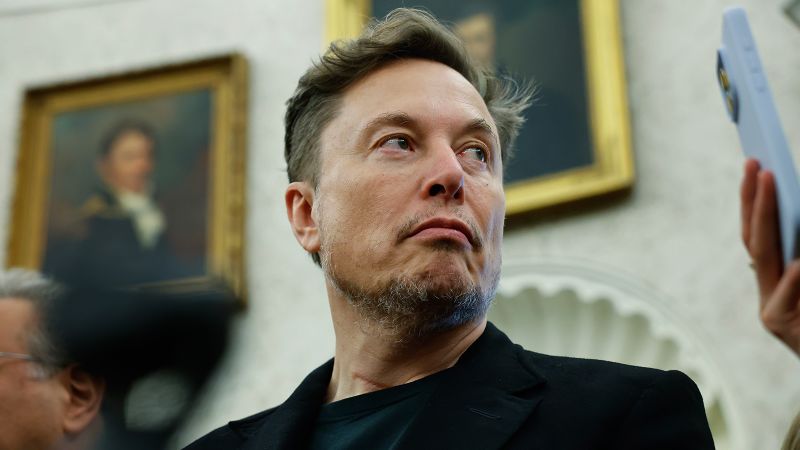Elon Musk’s recent interactions with President Donald Trump have attracted significant media attention, particularly following a week of public disputes that marked a stark divergence in their relationship. Reports have confirmed that Musk reached out to Trump on Monday night, expressing regrets over previous social media posts that criticized the former president and generated considerable backlash. This phone conversation, described as brief, was preceded by discussions Musk had with Vice President JD Vance and White House Chief of Staff Susie Wiles. During their exchanges, the trio focused on navigating the tensions that had flared between Musk and Trump, reflecting their mutual concerns over the escalating feud.
As the week progressed, Musk appeared to recalibrate his public stance. Notably, he deleted several critical posts directed at Trump, including one that alluded to the controversial figure Jeffrey Epstein and another endorsing the idea of impeachment for the former president. In a candid moment on his social media platform, X, Musk acknowledged that his previous posts “went too far,” indicating a desire to mend fences with Trump after the tumultuous events of the preceding days.
The unfolding drama was not only confined to the interactions between Musk and Trump but had broader implications involving Republican lawmakers and influential figures within Trump’s circle. Over the week, several key Trump allies reached out to Musk, seeking to convince him to not just reconcile with Trump but also lend his support to a domestic policy bill touted by the president. Their efforts were underscored by the historical relationship Musk had cultivated with Trump, having once been described as the president’s “first buddy.” This connection proved advantageous for the Republican aides as they made attempts to bridge the interpersonal divide that had emerged between Musk and Trump.
Messaging exchanges and phone calls highlighted the intricate dynamics at play as Trump allies worked not just to quell the public feud but also rally Musk’s support for the president’s initiatives. By engaging in diplomatic outreach, they aimed to convey to Musk the significance of backing what Trump referred to as his “Big Beautiful Bill,” catering to legislative agendas that faced substantial challenges in the Senate. While Musk displayed an openness to dialogue, he simultaneously expressed reservations regarding perceived inadequacies in the proposed legislation, particularly pointing out a lack of cuts in spending. This pushback showcased his nuanced positioning, straddling the line between engagement and critique.
In a bid to foster reconciliation, House Speaker Mike Johnson also reached out to Musk, aiming to act as a mediator. Johnson expressed optimism, stating that he believed both Musk and Trump could reconcile their differences, noting a reduction in the heated atmosphere surrounding their relationship. Elements close to Trump maintained that Musk’s endorsement of the domestic policy bill would be particularly valuable, given the weight his words carried in the conservative landscape.
The days leading up to the phone call witnessed significant shifts, especially after Vice President Vance received instructions from Trump on how to handle the public narrative concerning Musk. As tensions eased, insights from within Trump’s administration hinted that while Musk had engaged with criticism, both he and Trump seemed inclined towards deescalation. The aftermath of their friction showed signs of potential reconciliation, augmented by Musk’s increasing social media compliments toward Trump’s governance amidst volatile events in California.
Recent developments prompted Musk to reconnect with notable figures such as Stephen Miller and Charlie Kirk, both of whom had been vocal proponents of Trump’s policies. Kirk articulated a hopeful outlook regarding reconciliation, indicating a commitment to facilitate dialogue between Musk and Trump. Musk’s expression of regret appeared to resonate with Trump, reflecting a nuanced end to their publicly portrayed discord.
In essence, the strained yet evolving relationship between Musk and Trump serves as a dramatic tableau illustrating the complexities of alliances within political landscapes, enhanced by the very public nature of their disputes and subsequent reconciliation efforts. As numerous stakeholders continue to navigate this narrative, the potential for a renewed alliance between Musk and Trump stands at a pivotal juncture, deeply intertwined with broader political objectives and personal reconciliations.



